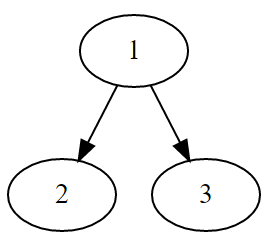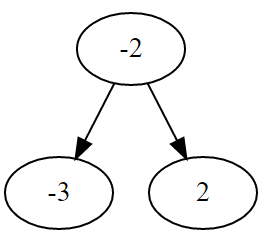Most Frequent Sum
The sum of a subtree is the sum of all the node values in that subtree, including its root.
Given a binary tree of integers, find the most frequent sum (or sums) of its subtrees.
Example
- For
t = {
"value": 1,
"left": {
"value": 2,
"left": null,
"right": null
},
"right": {
"value": 3,
"left": null,
"right": null
}
}
the output should bemostFrequentSum(t) = [2, 3, 6].
Since all the sum values in this tree occur only once, return all of them in ascending order.
- For
t = {
"value": -2,
"left": {
"value": -3,
"left": null,
"right": null
},
"right": {
"value": 2,
"left": null,
"right": null
}
}
the output should bemostFrequentSum(t) = [-3].
There are 3 subtree sums for this tree: -2 + (-3) + 2 = -3, -3, and -2. The most frequent sum is -3 since it appears twice.
Input/Output
[execution time limit] 3 seconds (java)
[input] tree.integer t
A tree of integers.
Guaranteed constraints:
0 ≤ tree size ≤ 105,-20000 ≤ node value ≤ 20000.[output] array.integer
- The most frequent subtree sum. If there are several such sums, return them sorted in ascending order.